|
In order for a muscle to gain strength, it must first be stressed with a load heavier than usual. Muscle fibers tear, creating a minor injury and you experience discomfort, possibly pain. Immediately the body begins repairs, and the muscle fibers grow in strength and size so they can better handle the increased load. When your muscles increase in strength and endurance you can walk farther, climb higher, hug tighter. Your world expands, but first, there is the discomfort.
A similar series of events occur when you push yourself to achieve a new goal. A goal or desire comes from the absence of something you want. You don’t have this yet, because your current thoughts and behaviors do not support this desire. To get what you want, you must do something different, and herein lies the problem. Just like lifting a heavier weight causes discomfort in your muscles, creating new habits with your thoughts and behaviors causes discomfort in your brain. You may have heard the term, “what fires together, wires together”. This means that with each of your thoughts and behaviors, specific neurons in the brain are activated. When certain thoughts and behaviors are repeatedly paired, they wire together, making this pathway feel like the “easy” way. For example, someone who wants to start an exercise program may have wired this series of thoughts and behaviors: ”I should go for a walk. I’m tired. I’ll do it tomorrow”, and the resulting behavior is continuing to sit on the couch or stay in bed. This pattern may have been going on for years, and inserting a new behavior or thought feels uncomfortable, because your brain is saying, “Wait! I don’t have a neural pathway created for this." The goal is to create new wiring that pairs the thoughts and behaviors needed to achieve your dreams. In this example it would be to pair the thought, “I should go for a walk” with putting on walking shoes and perhaps the new thought, “My day always goes better when it starts with a walk.” To create this new pairing, you must expect some discomfort. The neural pathways of your old habits have been well greased over the years, and when you chose to do something different, you’re forging a new path that hasn’t been used before. It’s thick with briars, undergrowth, and overhanging limbs. The new path isn’t impassable, but it will take some effort to navigate. The good news is, the most difficult part of this new path is the beginning. It’s the initiation of the behavior that feels uncomfortable, but once you step outside to walk, start a job application, ask for help to leave a relationship, pick up an apple instead of a bag of chips, you usually feel better immediately, because your behaviors are now congruent with your desires. Right away, the new neural pathways that support your desired change are starting to wire together. Even if you only engage in the new behavior for a few minutes, you’ve begun the groundwork of linking new thoughts and behaviors that create what you want. Here are a few tips to help you push through the stickiness and discomfort of creating new neural pathways. 1. Set the stage for success - Make sure the dream or change you are pursuing is your own and not prompted by the influence of your parents, a partner, or your social circle. Identify any beliefs or fears that may inhibit your ability to change, and replace these with beliefs that support your goal. My last blog addressed this in more detail. 2. Mindfulness - Be mindful of your unhelpful patterns and bring attention to them, without judgement, to increase awareness of your current behaviors. I love the phrase, “Isn’t that interesting….”. For example, “Isn’t that interesting that I want to be fit and healthy, but I’m choosing to sit here on the couch and watch Netflix.” Keep your inner dialogue focused on labeling what is happening without being critical. The neural pathways of self criticism are six lane, well maintained interstates, and do not need more attention. Once you’ve identified your habitual way of responding, you can replace it with your new behaviors. 3. Affirmations - Replace self sabotaging thoughts with affirmations that support your new behavior. An affirmation is a short phrase, in the present tense, like, “My body is strong and healthy”. Create several affirmations and repeat them multiple times a day, use them as screen savers, put them on sticky notes on your bathroom mirror. The more exposure you have to your affirmations, the easier it will be to insert them in place of your habitual, negative self talk. 3. Expect discomfort - Be prepared for the discomfort, the stickiness, the “this doesn’t feel normal” feeling. Label that feeling when you notice it and remind yourself this is part of the change process. If you’re consistent in making new choices that align with your goals, this discomfort will decrease as new neural pathways are created. 4. Visualize - You can help your brain prepare for new behaviors by visualizing them ahead of time. Visualize the alarm going off, putting on your shoes, and heading out the door for a run, or whatever your desired behavior is. The more detail and emotion you bring to your visualization, the more it will help you. Athletes use visualization regularly to prepare for competition, because it works. Your neural pathways are firing, albeit not as strongly, as if you’re performing that behavior, reinforcing the new connections in your brain. 5. Gratitude - Notice the positive outcomes of your new choices and record them in your gratitude journal. You may include positive emotions, strengths you’ve identified in yourself, and after some time, noticeable progress towards your dream or goal. Reflecting on why you’re grateful for your new behaviors reinforces them, and provides evidence to challenge the thoughts that could sabotage your forward momentum. 6. Prepare for stress - Periods of increased stress deplete your mental energy, making it more likely that your brain will choose the “easy” path. Be prepared for this. If you notice yourself slipping back into old behaviors during times of stress, be compassionate with yourself and refocus on the above tips to get back on track. You can create new behaviors and achieve your dream, but expect the discomfort. When you notice this, use it not as a reason to give up, but as motivation to continue. The goal is to move through this discomfort, over and over, strengthening the neural pathways of the thoughts and behaviors that will create the life you want.
0 Comments
It’s safe to say that having a happy*(see note) and meaningful life is a universal desire. A phrase I often hear in my counseling practice, and I’ve used myself, is “I just want to be happy.” Despite this longing, people have difficulty achieving and sustaining happiness, sometimes even sabotaging themselves when things go well. Why does this happen?
One reason this occurs is because we have core beliefs that limit our ability to be happy. Our belief system does not support our goal of happiness, making it difficult to achieve. We end up making choices that support our belief system rather than our goal. One of my negative beliefs, which I’ve shared in a past post, the-conundrum.html, is that I shouldn’t be happy when others are suffering. I’ve also heard people share their belief that they don’t deserve to be happy or if there’re happy, they’re betraying a loved one who has died. In this post, I want to address a belief that has been prevalent in my practice over the past few months, that being happy somehow puts us at risk and remaining depressed protects us. I’ve had clients say that whenever they’re happy, bad things happen, so, they’re reluctant to create a more positive mood state. Others say that if they allow themselves to be happy, bad things will still happen, or their depression will return, and this fall from happiness back to depression is more painful than remaining depressed. Others believe that they cope better with life’s challenges if they’re already depressed, that somehow a negative mood state strengthens them to cope with negative events. If we’re not currently depressed, or these beliefs are not ones we’re challenged with, it’s easy to see they are distorted and not based in reality. But when they are subconscious and hidden, these beliefs can play a powerful role in our mood. Bringing our negative beliefs to light illuminates the conflict between our goal of happiness and our belief system. It’s impossible to achieve a goal if we don’t have the beliefs to support it. The options in this case then are to accept unhappiness based on the current belief system, or change the beliefs to support the goal of being happy. Assuming that everyone wants happiness, let’s start by challenging the belief that “bad things happen when I’m happy.” This is a true statement, but bad and good things take place all the time. It only makes sense that occasionally something bad will happen when we’re happy, but there’s no data to support this as a cause and effect relationship. We need to release this and embrace the exact opposite, “good things happen when I’m happy.” This belief is supported by scientific research and most likely from our own lives, if we take time to reflect. When we’re happy our brain is not biased towards the negative, and we’re able to notice the beauty, kindness, and abundance that’s always present, and this awareness sustains our positive mood state. When we’re not depressed we have more energy, motivation and confidence. This puts us in a position to create healthier relationships, take care of our physical health, and push ourselves outside our comfort zone to achieve new things, all actions which contribute to positive outcomes. Although bad things happen no matter what our mood, we need to adopt the belief that “more good things occur with a positive mood.” The other two beliefs, that the fall from happiness to depression is more painful than remaining depressed, and that a negative mood state will provide strength for coping with bad things, can both be challenged by the research on resilience. Resilience, according to the American Psychological Association, is the process of adapting well in the face of adversity, trauma, tragedy, threats or significant sources of stress. It means "bouncing back" from difficult experiences. If we’re going to deal with life’s challenges, or a cycle back into depression, resilience is what we need, not a depressed mood. If we were lucky enough to grow up in a safe, loving environment, free of abuse and neglect, we were given a head start in resilience. Fortunately resilience can be cultivated, no matter what our background. Research has identified that supportive relationships, positive self image, problem solving skills, optimism, adaptability, self regulation and a sense of purpose all contribute to our ability to bounce back from adversity. So, if we want to rebound from a bout of depression or a negative event, we need to learn the skills that foster resilience, not remain immobilized in depression. Our core belief should change to “resilience helps me cope with adversity.” Rarely does one conversation, or blog post, change a life long core belief, but it can begin the process. Once we’re aware of our negative core belief, the fact that it’s distorted and doesn’t support our goal of happiness, we can identify when we’re letting this belief control our behavior. We can also look into our own lives, and the lives of those we admire, for evidence that contradicts our negative core belief. This work can be done alone through self reflection or journaling, or in the company of others like a trusted friend or therapist. Occasionally, in the case of severe clinical depression, awareness alone is not enough and medication may be required. Once we’ve adopted beliefs that support happiness, our thoughts and behaviors will align with the new beliefs. We believe in our end goal, so we’ll be more motivated to commit to the habits that create happiness and less likely to sabotage ourselves. This work takes some time and focus, but it’s not a selfish endeavor because when you’re able to experience joy and happiness, you can share it with others. And doesn’t our world need more of this? *NOTE* I’m not a fan of the word happy, as this denotes a transient emotional state. I prefer the term flourish, from positive psychology. In order to flourish we need positive mood states such as happiness, but also supportive relationships, meaning, engagement and accomplishments. Because most folks use the word happy, I have used it in this post, but know I am referring to the multidimensional concept of flourishing. When I was young and watched the Wizard of Oz, I resonated with the tin man. I believed the ability to love and be loved was the most important trait one could possess, which was convenient for me, because opening my heart to others came easily. I never gave the lion much thought. In fact I was impatient with him, whining about not having courage. Why couldn’t he just roar and carry on? He was a lion after all. As I moved into adult life, love, peace, joy, and compassion were traits I cultivated, but courage was never on my radar, until this year. Last month I created a vision board for 2019 and was inspired to put a word in the center of it. My first instinct was to put PEACE, but then I hesitated, because peace is something I often use as an excuse to stay in my comfort zone. To feel peaceful, I need to manage my anxiety, and to manage my anxiety, I need lots of control and organization. I feel peaceful when the house is clean, all the bills are paid, my personal relationships are free of conflict and I have plenty of time to exercise, meditate, and sleep. Maintaining peace keeps me busy with tasks that reduce my anxiety, but it also limits the time and energy I have to grow and challenge myself. So, last month I resisted the urge to put PEACE through the center of my vision board and instead, took the first word that popped in my head after that, COURAGE. I had no intellectual reason for choosing this word but strictly followed my instinct and soon it was spelled out in silver glitter as my word for 2019. But what does it really mean? Merriam Webster defines courage as “the mental or moral strength to venture, persevere and withstand danger, fear or difficulty” That definition wasn’t specific enough for me. How do I as a white, heterosexual, cisgender, middle class, well educated woman express courage? I was born with privileges that create safety and minimize obstacles to success. Have I even been courageous in my life ? Well, probably. I bicycled across the United States after college. I ran marathons. I loved, was hurt and betrayed, and chose to love again. I moved to Oriental to start a new life. I self published two novels. I started my own business.
Because I rarely look at my life through the filter of courage, I’ve never given myself credit for the courage it took to achieve these things. Being courageous has brought joy, satisfaction and a sense of purpose to my life, energetic feelings that are difficult to experience when I’m merely at peace. But I still haven’t answered the question of how I’ll be courageous in 2019. I have some ideas, like being more assertive with promoting my writing, leading women’s workshops, and letting my hair go silver (future blog post alert). Ultimately courage requires me to be authentic and self possessed. I am here to share my unique version of the divine. My unique version. That means my contribution to the world will be different than everyone else’s and I should not let that scare me. I need to have the courage to express myself through my words, actions and behaviors, and not be restricted by the fear of conflict, disapproval and rejection. And when I experience conflict, disapproval and rejection, peace will restore me, so I have the courage to continue living an authentic life. Peace and courage, opposite sides of the same coin, a silver coin, with glitter on it. Christmas came early to me. Two weeks before Santa’s arrival I was given a heartfelt, meaningful gift that I would never exchange for a material item, no matter how extravagant. It was given by someone I’d only spent three hours with, and hadn’t seen in three or four years. The gift was four words, “You saved my life.” These words took my breath away and brought tears to my eyes. I instinctively crossed my palms over my heart and tried to receive this offering. I was speechless. The speaker, a former client who happened to be in the same place I was, continued. They said they’d met with me at one of the lowest points in their life and our three counseling sessions provided them with a template for change. Little by little they made adjustments based on our discussions and now were living a more fulfilling life. This experience touched me in a profound way. In the immediate context, this five minute exchange completely replenished me after a stressful week. One client, who I’d seen every day that week, was in crisis, another was at risk in an abusive marriage and yet another was trying to cope with the recent murder of his brother. I was emotionally depleted after doing my best to be fully present with my clients and their suffering. These four, simple words refilled my reservoir of compassion and resilience. It felt like divine intervention to be given this gift after one of the most challenging weeks of my year. On a larger scale, this interaction illuminated the fact that I never know the impact I may have on someone. Because this client didn’t reschedule, I thought I hadn’t been helpful or had possibly said something to anger or hurt them. It never once crossed my mind that I had provided what they needed. Their gratitude gave me hope that I was making a difference in the world, something my inner critic often denies. It inspires me to keep doing my best, even though I may never know the impact my efforts have on others. Carrie Newcomer, one of my favorite songwriters, captures this in her song, “Stones in the River.” So today I'll drop stones into the river And the current takes them out into forever And the truth is most of us will never know Where our best intentions go. We may question the impact we’re having globally, professionally, and in our personal lives with those we love. We may ask ourselves, “What’s the point of it all?”. My belief is that “the point of it all” is to positively affect others. We must, as Carrie Newcomer wrote, throw our stones into the river, even though we’re not sure where they will land or the difference they will make. Maybe our stone is to help align someone with their life purpose as I did with this client; maybe our stone is our sense of humor that changes a mood; maybe our stone is a piece of art that changes someone’s perspective. Or maybe, our stone is made of words. Words have power. My words had the power to change a client’s life and their words had the power to change mine. Words are free and require no time commitment, but as my story exemplifies, words can transform a life, or at the very least, a day. Are you aware of the impact your words have? Do you speak mindfully from a place of compassion and non-judgement to both yourself and others? You are more powerful than you give yourself credit for, so please, use this power for the good. Set the intention for 2019 to use words that teach, uplift, love and express gratitude. Never doubt that you as one person cannot change the world, because you can, and it may only take four words. Most of us live in an either or mindset. Things are going well or badly. We’re happy or sad. There is peace or chaos. Our brain and our culture like to put things in a box so we can make sense of the world. I see this daily with my clients. Someone will come in declaring their week was horrible, but by the end of the session we’ve identified many positive experiences. Or, a client says their partner has changed and is now loving and supportive, and they overlook the stitches, bruises and terror they’ve experienced in the past.
No matter what our perception is, the world is too massive and beautifully complex to be either or. When we open our minds and hearts and soften our focus, we can begin to embrace the paradox. Life is always both, and, and Hurricane Florence made this more evident to me. The first place I noticed this paradox was in myself, specifically my anxiety. It escalated in the days prior to Florence, partially fueled by memories of what I saw and heard during my time as a crisis counselor in Mississippi after Hurricane Katrina. Ultimately my anxiety provided me with both a challenge and some assistance. I barely slept and couldn’t eat much as we prepared to evacuate. It was difficult to focus and sometimes I literally walked around in circles in our condo, forgetting what I was doing. Thankfully, I became aware of what was happening, pulled myself into the present moment, and looked for where I had control. I channelled my nervous energy into packing and gathering supplies. All my favorite clothes and sentimental items were packed neatly into bags that I arranged perfectly in the back of my Subaru. We had flashlights, batteries and emergency packages of food to take on our evacuation drive. I had enough water to hydrate the Brady Bunch and calories to sustain us for a week (yes I calculated that out). Thankfully, I was over prepared, but my anxiety incited me to take control where I could which ultimately decreased my stress. I also don’t have to buy water or snacks for the next month. We evacuated for three days, and when I returned home I experienced both gratitude and grief. I was grateful our home was dry (we only lost ductwork and HVAC) and friends and loved ones were safe, but I grieved the physical devastation of my beloved hometown, and the huge losses friends and neighbors suffered. At times my grief morphed into guilt and I felt both grateful for my dry home, good insurance, financial security and guilty that others were suffering with fewer resources to assist them. Sometimes it was difficult to hold all these feelings at once and I was thankful for the simple task of picking up shingles and dragging limbs to distract me. The immediate recovery after Florence was not an either or situation either. It provided both complexity and simplicity. Everyday activities like getting gas and groceries, charging our phones and sending emails took more time and effort than usual. In addition there was the complicated and confusing process of calling insurance companies, filing claims, and requesting quotes for repairs. In this midst of this, things were also simplified. That first week after Florence I worked outside during the day, and in the evening sat with my husband as we cooked on the grill. When it was dark I slept. When it was light I got up. There was no where to go and nothing to do except the cleanup tasks in front of me. I couldn’t have done it forever, but I enjoyed the simplicity of spending all day outside with my husband doing physical work, simple meals cooked on the grill and sound sleep with no electronic distractions. The paradox of Hurricane Florence was also evident in my community. Florence brought both destruction and beauty to Pamlico County. Trees were thrown like pick up sticks, piers crumpled or gone, homes and businesses destroyed by floodwaters, and then there was the quiet stealth of mold making homes unlivable. In the midst of the destruction that devastated many lives, there was also beauty; neighbors and strangers helping one another, lineman from across the country working 18 hour days to restore power, money, time, cleanup supplies, and food readily donated to help those in need, a perfect sunrise just beyond the pile of debris. In the middle of the loss and suffering was love, beauty and resilience. The recovery from Hurricane Florence will take a long time. Restored power and internet, clear roadways, and access to gas and groceries has created some sense of normalcy, but the reconstruction, financial strain and emotional stress will not be resolved for a while. As we move forward after the hurricane, it’s important to take both action and inaction. We need to repair our homes, attend to insurance issues and help those in need, but this must be balanced with self care or we will burnout. It’s important to return to healthy sleep and exercise habits, a diet full of fruits and vegetable and to participate in the spiritual practices that sustain us. Each day we should look for things to be grateful for and focus on where we have control in the moment. I challenge you to open your mind and heart, and soften your focus so you can see things as both and, instead of either or. We must acknowledge the challenges we face so we can overcome them, and improve our life and the lives of others, while simultaneously embracing the beauty, grace and love that is available, as this is what will sustain us as we recover from Hurricane Florence. “I just want to be happy.” Eighty five percent of the time my clients say this when I ask them to summarize their counseling goals. I don’t correct them in that moment, but, “just being happy” is a goal with limits. Unfortunately it’s what many people aim for. Trying to “just be happy” can contribute to addiction as we look for quick fixes of happiness in food, alcohol, drugs, sex and shopping. Sometimes we believe we’ll be happy when we reach a goal like weight loss, a new relationship, our dream job, a bigger house. But this doesn’t achieve what we want either.
How we feel in the moment, and achieving things, are components of a good life, but the field of positive psychology has identified additional factors, and elevates the goal of “just being happy” to flourishing. Dr. Lynn Sotts, a positive psychologist, describes flourishing as “the product of the pursuit and engagement of an authentic life, that brings inner joy and happiness through meeting goals, and being connected with life passions, and relishing in accomplishments through the peaks and valleys of life.” The construct of flourishing was first identified by Dr. Martin Seligman and consists of five factors:
Accomplishment I feel a sense of accomplishment at completing two novels, but I also feel this every day when I’ve made the time to write or when I notice a small improvement in my skills. Pushing my comfort zone with public speaking, and marketing and promoting my books, has also contributed to feeling accomplished. Engagement Writing helps me engage with both my inner and outer worlds. On a good day of writing, when I’m fully immersed in my plot, or finding the most eloquent way to express something, I’m engaged with my inner world. When I’m connecting with readers at book clubs or a reading, talking with my publisher, or coordinating marketing events with promoters, I’m engaging with the outer world. Sharing my writing and contributing my ideas, vision and creativity is also a form of engagement with the world. Relationships I met two of my dearest friends 11 years ago, at my first writing workshop. Since then we’ve shared writing, reading and our lives in a deep way and I’m eternally grateful to have them in my life. Writing has also given me meaningful, brief relationships with my readers through emails or conversations about how my book(s) touched their lives. Though writing, I’ve also developed a more meaningful relationship with myself. Completing and publishing two novels revealed both my strengths and challenges. I was acutely aware of how I hold myself back with self doubt, self criticism, and feeling unworthy. I also found I have more creativity, courage and perseverance then I ever realized. Meaning Knowing that my life, and my writing in some way, however small, has had a positive impact on another human being gives my life meaning. This broad sense of meaning permeates my daily life and provides the motivation to continue to write and not give in to self doubt. Positive Emotions Ah, finally, we’re at the “just being happy part”, but it still isn’t that simple. Happiness, joy, peace, excitement are all positive emotions I’ve experienced in relation to my writing, but I’ve also experienced a great deal of negative ones: disappointment, loneliness, self doubt, anger, and frustration. The positive emotions certainly override the negative ones or I wouldn’t be a writer today, but it’s important to note that in the midst of a flourishing life, negative emotions are expected and not a reason to give up. The emotion most strongly associated with my writing is not happiness. It’s peace. Knowing that I’m following through with what I’m meant to do and sharing it with with the world, despite the obstacles, gives me a sense of peace and authenticity. When I go long periods of time without writing, I experience dis-ease, because I’m not devoting time and energy to my passion and to one of the reasons I was put here on Earth. I encourage you to look at your life through the lens of flourishing. Look for experiences and outlets that bring meaning, engagement, accomplishment, relationships and positive emotions into your life. Don’t settle for “just being happy”. Tap into your perseverance and resilience and create a life that flourishes. P.S. When I finished this blog I felt HAPPY:) Here are some resources to learn more about positive psychology and flourishing: positivepsychologyprogram.com/flourishing/#definition www.authentichappiness.sas.upenn.edu A couple weeks ago I spent three days in silence. I booked a retreat at The Trinity Center in Salter Path, N.C. after recognizing I was burned out. Lack of motivation, irritability, sadness, tearfulness and difficulty concentrating are easy symptoms to recognize in my clients, but more difficult to identify in myself and I let them linger too long. I thought my daily self care of a healthy diet, regular exercise, and 7-8 hours of sleep, would inoculate me against burn out, but it didn’t. When I cried on the way into work one Monday, I knew I had to take time away from my usual routine.
The silence, solitude and time by the ocean was balm for my frazzled spirit. Without the distraction of verbal conversations, text messages, Facebook and emails, the connection to my wise inner voice was stronger. I gained clarity and insight into my life and wanted to share one of the most powerful lessons I learned while on retreat. I waste too much time checking, shoulding, and worrying, and this interferes with the forward progress of my life. Checking. With my phone off for three days, I was painfully aware of how often I pick it up to check things; things like personal voicemail and texts, work voicemail and texts, the wind speed on Saturday, the current temperature, how many likes my sunrise picture got on Facebook. Sometimes I scroll Facebook checking nothing in particular and gathering information that has little bearing on my life. The constant flow of information and images to my brain acts as a stimulant making it difficult to relax and concentrate. The checking, clicking, deleting, and scrolling hijacks my time and attention and prevents me from taking action towards my goals and dreams. Shoulding. “You should set your alarm and get up at 5:30am”,“You should walk farther on the beach”, “You should leave the retreat with a blog to post.” These are just a few examples of the shoulding I did during my retreat. I had no agenda there other than to relax, but even then my task master was issuing orders. Each time a should statement was dispensed it took me out of the moment and into an internal debate about the proper course of action. Walking beside the ocean with nowhere to be and nothing to do I created discord. Luckily, during my retreat I quickly identified the should statements and ignored them. In my daily life though, when I’m less mindful, I spend too much time engaging with should statements. This is never productive and usually ends in harsh self criticism. When this happens I lose faith in myself and don’t believe I’m capable of achieving my goals. Forward progress stops while I lament my character defects. Worrying. I know I worry. I understand what a colossal waste of time and energy it is but I come from a long line of worriers and am well trained. My retreat allowed me to step away from my life and examine it somewhat objectively, like I do with my clients. From this perspective I was able to see the impact worrying has had on my life. I was sad about all the time I’ve wasted living in the my head and not living my life. Sure, there are plenty of things I need to address, but the ruminating, and the anxiety it creates, depletes my time and energy and leaves little left for my goals and dreams. In their own way, each of these bad habits robs of me of time. They pull me out of the moment and increase my stress. Time has never been a limiting factor for achieving my dreams before, experience, intelligence, motivation, opportunity, self esteem yes, but never time. My 50th birthday and a five day hospital stay last fall made it clear that my time here is limited and I must use it wisely. I love the line from James Broughton’s poem, Easter Exultet that says “Run with your wildfire. You are closer to glory leaping an abyss than upholstering your rut”. Checking, shoulding and worrying are upholstering my rut and wasting my time. I need to change this pattern so I have the energy to leap the abyss that stands between me and my dreams. So what will I do? Checking. Thankfully, going cold turkey form my phone automatically reduced this. Some of my checking was due to FOMO (fear of missing out); fear of missing an important email or text, fear that something important was happening in the world or in someone else’s life, fear there was an opportunity I may miss. My retreat showed me I’m actually missing out on my own life with all the checking, not the other way around. Some changes I’ve made are to unsubscribe to over 50 emails to save time checking and deleting, to only scroll through Facebook once a day, to set my do not disturb on my phone form 8pm - 6 am, and to physically put my phone at the back of the house so it’s more difficult to check on things. Shoulding. Once I identify I’ve made a should statement, or that I’ve already begun debating one, I’ve found several helpful options to derail this. One is to label the should statement and ignore it, like when my alarm goes off at 4:45am and my inner voice says “You should go back to sleep”. Thirty years of early morning exercise has taught me that I never regret getting up, so I do. Sometimes a should statement arises because I’m ambiguous about something like, “You should get a new certification in counseling.” I will avoid an internal debate to determine the best course of action and be proactive. In this case journaling, meditating, listing pros and cons and paying attention to my intuition will be helpful. The most insidious type of should statement is the judgmental one, like, “You should make more money.” I need to address this type immediately to avoid an avalanche of self criticism. The most powerful way to do this is by using I am statements. “I am working hard doing meaning work,” would be one to challenge the above statement. I will repeat my I am statement several times and then bring my attention back to the moment. Worrying. A new strategy I’ll use in my life long effort to reduce worrying, is a daily practice of meditation, even if only for a couple minutes a day. Besides being the best way to practice mindfulness, it also connects me to something greater than myself and keeps my worries in perspective. When I notice I’m worrying I’ll label this behavior and then challenge myself by asking, “Is this thought leading me towards my goals and dreams?” Most likely it’s not and at this point I’ll either refocus my attention or take action to address the cause of the worry. Finally, I’ll remind myself of my retreat and the the grief I experienced about losing a part of my life to anxiety. I won’t be perfect in my efforts to change, especially when I’m under stress, but I’m hopeful these new behaviors will allow me to reclaim my time from the checking, shoulding, and worrying. The next time I read Mary Oliver’s poem, The Summer Day, and she asks, “Doesn’t everything die at last and too soon? Tell me, what is your plan to do with your one, wild and precious life”, I can answer that my plan is to maintain inner peace and use my time and energy to love and serve others. P.S. I also decided I waste too much time straightening my hair so my curls are back. It all started because I was looking up at the stars on my 5am run. Their beauty and timelessness, and my body moving easily through the dark, silent morning, made me feel insignificant yet connected to all that is. Suddenly pavement hit me in the face and pain erupted in my knee. In hindsight I thought of Pierre Teilhard de Chardin’s quote, “we are spiritual beings having a human experience.” Thanks to a small pothole, I went from experiencing a spiritual connection to being painfully aware that I was a mere mortal in a human body.
I thought this story would end with my skinned and bruised knee healing and a return to full activity. In fact, after running four miles pain free five weeks later, it seemed this was the case. Two hours after my run that day, my knee began swelling and became hot and painful. Urgent Care diagnosed infection. Long story short, I failed 3 days of outpatient antibiotic treatment and on the Tuesday before Thanksgiving was admitted to the hospital. I was discharged after 5 days of IV antibiotic therapy and a minor surgery to drain my knee. I’m aware that my experience was insignificant compared to others’, but for someone who hadn’t been to the hospital since a tonsillectomy at the age of 4, it was a significant event to me. I tried my best to be a non-judgmental observer, both of my own reactions to a less then optimal Thanksgiving environment, and to what was happening around me. This worked most of the time. But alone at night, my room bathed in the glow from the infusion pump, and unable to move my left leg because of swelling or my right arm because of the IV, I cried. What if the infection goes into my bones or blood? What if I can’t run or paddle again? What will happen to my business if I can’t work for a while? Why can’t I just go home with my husband and dog and have Thanksgiving? After giving myself permission to have a small pity party, I was able to go to sleep. In the mornings I returned to observer mode and was alert for the lessons to be gained from this experience. Some were immediately evident, and some have come to light as I processed my hospital stay. Besides being discharged on the mend, with no long term impacts, I also left the hospital with these insights: 1. The coping skills I teach my clients actually work. I’ve been practicing mindfulness for many years and found this to be invaluable in coping with my illness and hospitalization. Jon Kabat Zinn defines mindfulness as, “paying attention in a particular way, on purpose, in the present moment, and non-judgmentally.” So, being fully present in a hospital room with a swollen leg doesn’t sound like much fun, but it did work. I promise. I focused on the nonjudgmental part and monitored my self talk. I tried not to say this is horrible, why is this happening, etc but would say instead, without judgement, “Isn’t this interesting? I’m a healthy person in a hospital”. The phrase, “isn’t this interesting” opened the door to observation rather then suffering about why these things were happening. Mindfulness pulled me into the moment when I used a newer coping skill, coloring. Exercise and nature are usually my go to strategies, but besides looking out the window and hobbling down the hall, they were not as helpful here. I found great solace in coloring while listening to music. In these moments my mind was focused on the lyrics of a favorite song and what color I would use next and I wasn’t able to worry, or lament that I wasn’t out paddle boarding. My focus was on something I had control of in that moment. Being mindful also allowed me to practice gratitude and notice the blessings despite the circumstances; my wonderful husband with a smoothy from Panera, the laughter of my nurse’s aide, the sunset behind Walgreens drug store. Having a needle stuck in my arm at 3am was not pleasant, but being gently awoken by my phlebotomist humming was. Where we put our attention makes all the difference and grace is available in every moment if we look for it. “We are spiritual beings having a human experience.” 2. Small gestures of kindness matter immensely. During my hospital stay I was on the receiving end of care, not where I’m comfortable. I don’t even like asking my husband to help put my paddle board on the car, but being in pain and scared made me receptive to the help of others. Several times during my stay I was moved to tears by the kindness and compassion that my loved ones and the hospital staff showed me. I experienced the impact a kind word, text message, authentic smile or simple gesture like filling my water bottle had. These small acts of kindness were as healing to me as the vancomycin and surgery, and this was an epiphany. As a therapist I’m familiar with the research on the power of compassion, but I’d always minimized my impact on others, uncertain that I could make a difference. Now I know otherwise. I will continue to be mindful of my interactions with my clients and look for more opportunities to reach out to others in my personal life. I will not discount the impact my words, presence or physical help has on others. I’ve experienced first hand that the exchange of love and compassion is powerful, and I believe if this is done more regularly, it can change the world. It definitely changed mine. “We are spiritual beings having a human experience.” 3. I am not invincible. My body can get injured and sick no matter how well I take care of it. I believed, or wanted to believe, that regular exercise, a vegan diet, adequate sleep, managing my stress and supportive relationships would protect by body. I thought I was invulnerable, so why couldn't I fight off an infection? The best answer the medical staff could give was, “this just happens sometimes.” My rational brain knew this was true because I’d witnessed it in my personal and professional lives, seemingly healthy people who have a sudden brain hemorrhage, or an accident that leaves them paralyzed or cancer that takes their life way to early. But not me, I’m different. But I’m not. Lying in a hospital bed, my leg inflated to twice it’s normal size and the red tendrils of infection creeping north and south of my knee, it was obvious I’m not invincible. It was also the first time that I understood, not just with my mind, but with my body and spirit that I am going to die. One day my body will fail and I won’t recover, and like the bear, the field mouse, the eagle and the trees, my body will die and return to the earth. But that is not the end. “We are spiritual beings having a human experience.” I wouldn’t have asked for a five day hospital stay over Thanksgiving but I’m grateful for the wisdom I gained from the experience. I knew before this that mindfulness is a heathy coping skill, that compassion is good and that I am going to die. But now, I understand these things not just with my intellect, but with my heart, spirit and body. Soon I will be back to my 5am runs. Will I still look up at the stars? Yes. Will I fall again? Probably. But that is the nature of life. “We are spiritual beings having a human experience.” I’ve never thought of myself as an activist. I donate money to causes I support and occasionally take action, like serving on the board of a non-profit in my community. But I consider my work as a counselor my primary contribution to society. Here, one person at a time, I help my clients function at a more optimal level so they can make a positive difference in the world.
Conserving my emotional energy for my work in mental health is one reason I haven’t been more engaged in political and social issues. Another is that I’ve never believed I had the power to change things at the macro level. It’s difficult enough to change one person’s behavior so taking on governmental policies, cultural norms, and corporate greed felt overwhelming. And finally, white, heterosexual privilege insulated me from the immediate impact of many social issues. I’ve always had clean water to drink. I don’t worry about my 18 year old nephew getting shot during a routine traffic stop. No matter who gets appointed to the Supreme Court I will still be married to the person I love. My perspective changed on November 8. The language, behavior and priorities of the incoming administration frightened me and didn’t reflect my values. After the election I did my best to stay focused on areas I had control over, but my one person at a time approach didn’t feel adequate for the circumstances. A week after the election I heard about the Women’s March on Washington. Its mission supported issues important to me and I decided to attend. To quote Gloria Steinem, I decided to “put my body where my beliefs were.” On Saturday January 21 I stood for seven hours in one place, with four people I love and surrounded by over a half a million others. The crowd was energized, peaceful and kind. I listened to impassioned speakers ranging from 82 year old Gloria Steinem to 8 year old Sophie Cruz. The entire experience was overwhelming and I drove home from from D.C. buzzing with the energy I’d absorbed. I was empowered! I could make a difference! I began the week calling senators, sending postcards and reading the news multiple times a day. The week progressed. Fueled by emails and Facebook posts telling me what was wrong and what I could do about it, I called my senators again and kept reading the news. By the end of the week I had difficulty concentrating and racing thoughts about the issues in my Facebook feed. I cried. Did I really have power? The energy I’d soaked up at the march was now scattered and unfocused, creating anxiety and helplessness instead of empowerment. I didn’t like this feeling. How can I be an activist without sacrificing my internal peace? I turned to someone wiser then me for help. The second core principle of Richard Rohr’s Center for Action and Contemplation is: “We need a contemplative mind in order to do compassionate action”. He defines contemplation as “a panoramic, receptive awareness whereby you take in all the situation ….without judging, eliminating, or labeling anything up or down, good or bad”. I was not acting from a contemplative place but simply reacting to directives from my emails and Facebook feed. I was motivated more by fear of what could happen then out of compassion for those impacted. Behaviors motivated by fear, no matter how well intentioned, still ignite our stress response system and this is what created my anxiety, irritability and helplessness at the end of last week. There are different strategies to reduce the stress response and create a contemplative, quiet mind and I’ve found that limiting my consumption of news, meditating and spending time in nature work for me. Thankfully I’m outside every day exercising and walking my dog so that’s already in my schedule. This week I’ve added 10 minutes of meditation in the morning and evenings. I’m also being selective about where I get my news and going to primary news sources rather then clicking on articles posted on Facebook. My next step is to set a time limit on when I read the news. Most likely this will be over breakfast and again early evening with time to decompress before bed. Now that I’m spending more time in a contemplative mind state and racing thoughts aren’t clouding my judgement I’m in a better place to decide what compassionate action I want to take. But how do I chose? There are a multitude of worthy issues to support. Jean Shinoda Bolen, Jungian analyst, provides some direction in her book, Like a Tree; How Trees, Women, and Tree People Can Save the Planet”. Here she says, “..it is important to take on what you recognize as your particular assignment and not something others say you ought to do. …You can recognize your assignment by your answers to these three questions: Is this meaningful? Will it be fun? (i.e. surrounded by good people; able to use your creativity) Is it motivated by love?” Using Dr. Bolen’s three questions I will discern what issues are most important to me. From there I’ll use a combination of research, journaling and meditation to determine what action steps I want to take. It may be a call to my legislators regarding one of my top issues, attending another march, volunteering locally or writing a blog post. It may be as simple as carrying a peaceful and compassionate heart through my day. A positive outcome of our current political environment is more people are standing up for what they believe in. My hope is that everyone will take time to first create a sense of peace in their own life and then choose how to act compassionately to promote their values. The more people (liberal or conservative) focused on supporting what they believe in, rather then fighting against what they hate, the better our country and the world will be. I will close with a quote from Bill Plotkin’s book Soulcraft. I return to this again and again when I find myself jumping between people and issues I want to help and support. “It’s not possible to save the world by trying to save it. You need to find what is genuinely yours to offer before you can make it a better place. Discovering your unique gift to bring to your community is your greatest opportunity and challenge. The offering of that gift - your true self - is the most you can do to love and serve the world. And it is all the world needs.” Please take time to quiet your mind, discern your priorities and take compassionate action using your unique gift. Summer has 3 more weeks but she is starting to fade. I was inspired to write this poem after eating a mediocre peach and melon for lunch and then walking my dog Maya. The trees, shrubs and even the grasses seem to be tired from the heat.
THE MIDDLING TIME Melons, blueberries and peaches, A bruised, diluted version of July perfection. Heat and moisture, the forces that coaxed them to their peak, Force their retirement. Flower beds, once a flashmob of color, Now a scattering of protestors, brown heads hanging, Resisting the change. The trees sense the longer nights. Their leaves hungry for chlorophyll. Tired in their struggle and Unaware their grand finale will be as stunning as their debut. In this middling time, Mother Nature refills her palette. And the pumpkin waits. |
Archives
November 2023
Categories |
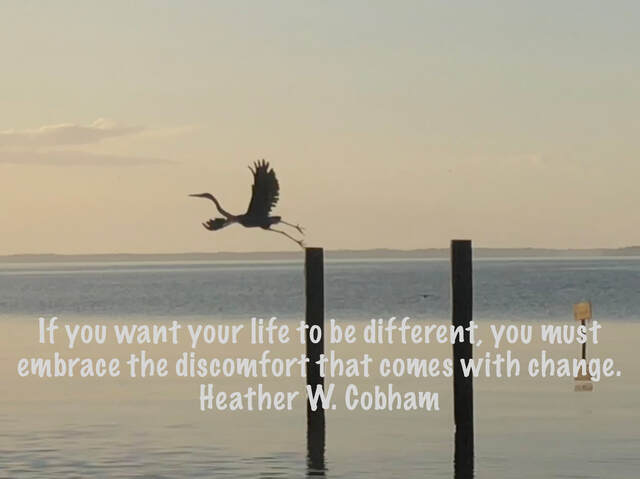
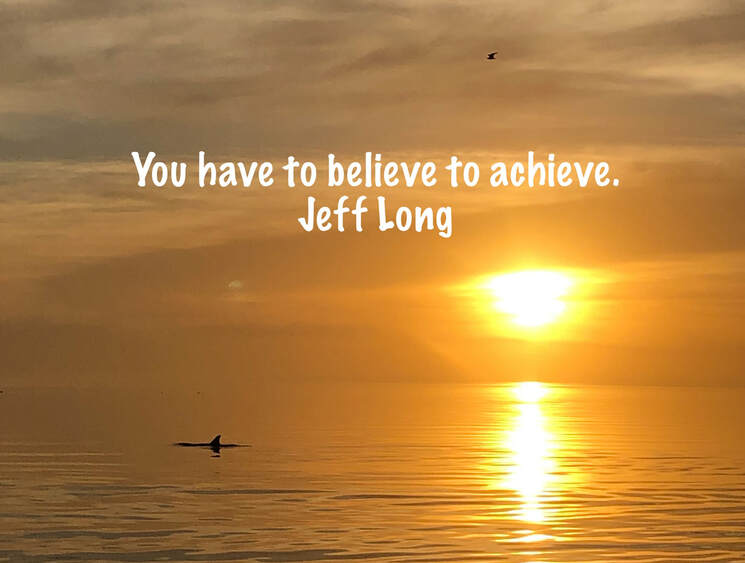
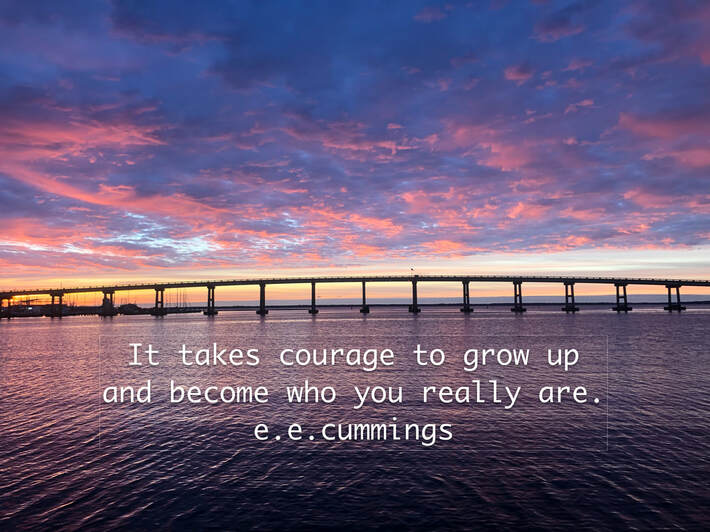


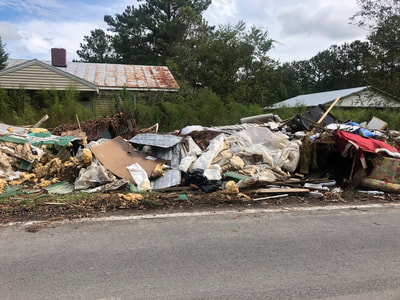


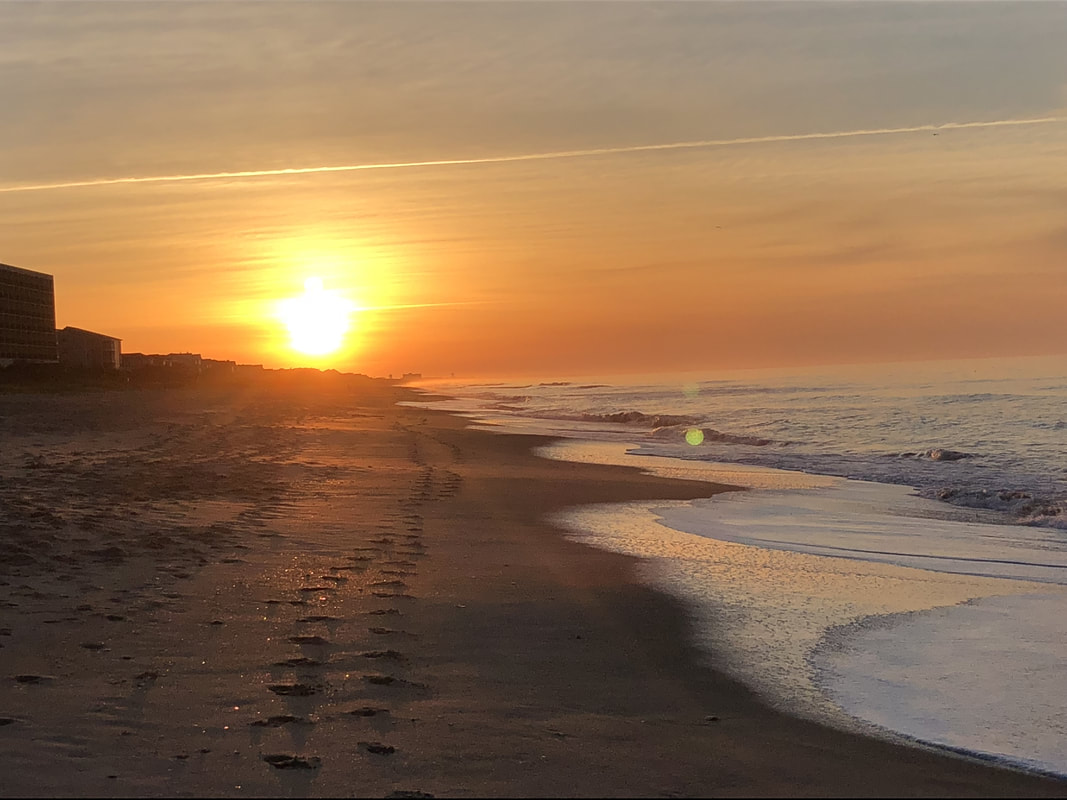
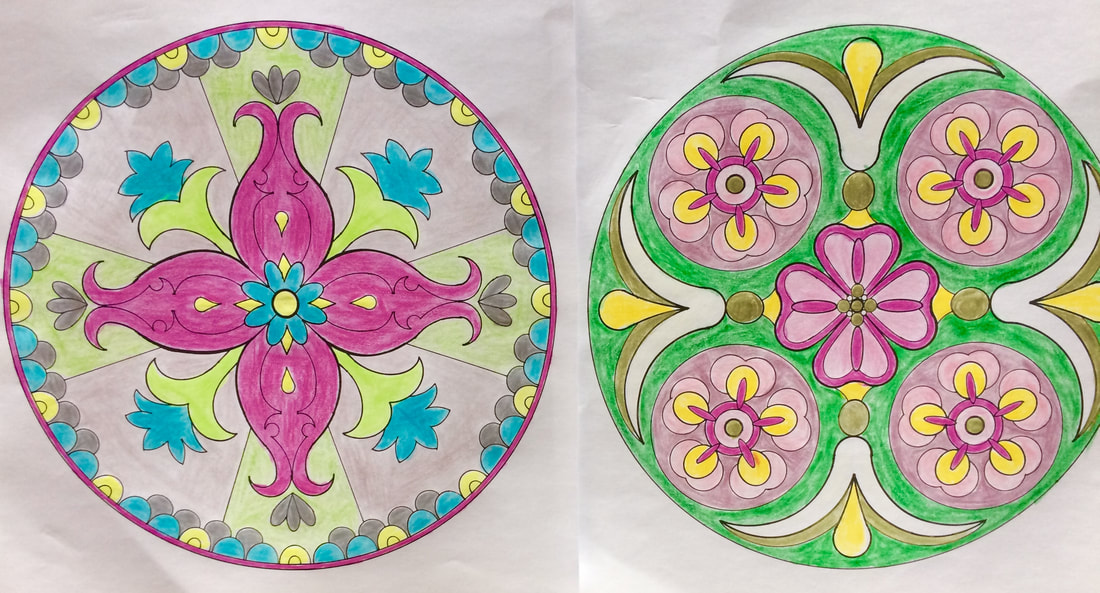

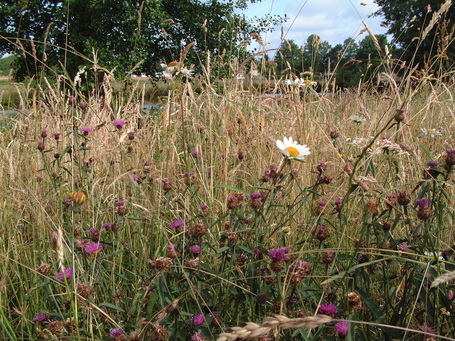
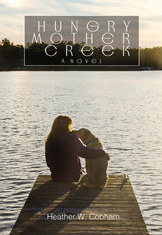
 RSS Feed
RSS Feed